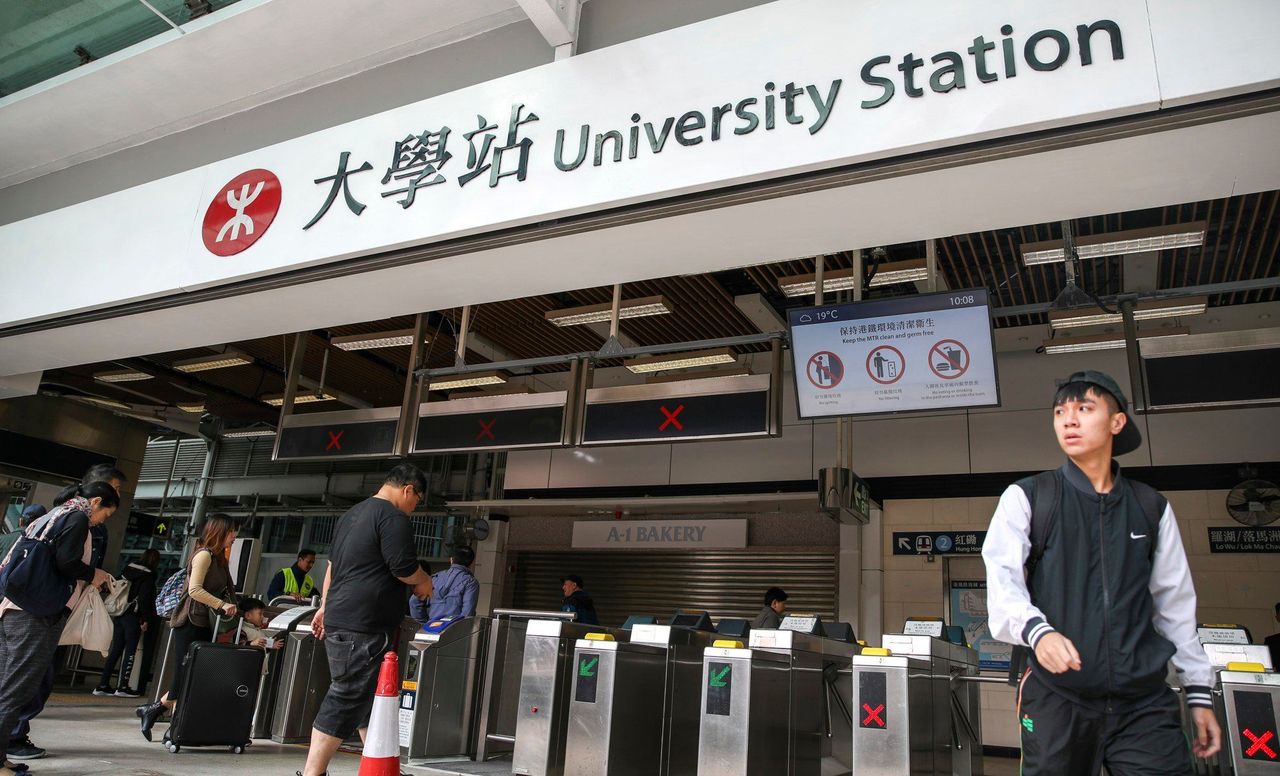Hong Kong News

Students cleared of being part of attack on Hong Kong campus security staff
Two university students accused of storming a Hong Kong campus checkpoint in a white powder attack on security guards two years ago have been cleared of involvement in an unlawful assembly.
Sha Tin Court on Friday did not convict Owen Au Cheuk-hei, a former student union chief at Chinese University (CUHK), and fellow undergraduate Ian Leung Ho-wai because of doubts over their identification.
Magistrate Gary Chu Man-hon ruled the presence of the two at the scene was based on “incoherent” security footage and “hearsay” evidence about their whereabouts after the incident, including dormitory check-in records.
He questioned the reliability of the dormitory records and highlighted that prosecutors had never tried to prove the records were accurate and had not been tampered with.
 University MTR Station in Sha Tin.
University MTR Station in Sha Tin.
Chu also expressed concerns over using disconnected security footage to prove the duo’s involvement in the incident outside University MTR Station.
He added the clothing of the two suspects on the video clips also had no special features that could assist in their identification.
The magistrate added there was a lack of evidence to show Au had ever been at the scene at the time of the offence and that – even assuming Leung’s identification was correct – his act of filming the disturbance could not have constituted participation in an unlawful assembly.
The trial of the two earlier this month heard that the unlawful gathering in 2021 involved around 10 protesters dressed in black, who charged the security barrier, knocked over railings and threw starch powder and eggs at guards.
They also appealed to students and visitors to walk past the checkpoint without showing their identification documents.
Police tracked down two black-clad men, including one who was seen to have filmed the assault, to a university dormitory after they checked security camera footage.
Entry records at the dormitory suggested the two accused were the perpetrators, with Leung said to be the individual who recorded the incident.
The pair were among four men charged in connection with the brief disturbance outside the station on January 11, 2021.
Au, who was not identified by prosecution witnesses during the trial, was also granted costs of the legal proceedings.
The minute-long confrontation was believed to have been sparked by increased security measures after the 2019 anti-government protests.
Chinese University was turned into a one-time battlefield between protesters and police during the 2019 unrest and suffered substantial damage.
Security checkpoints were later set up at all university entrances and visitors were required to show valid credentials or give their personal details before they were allowed to enter.
Those who opposed the arrangement argued it violated the principle of an open campus.
Some students were also outraged by the presence of national security officers at CUHK after a politically charged protest on campus in November 2020 where at least nine people were arrested.
CUHK undergraduate Cho Tak-hei was sentenced to six weeks in jail last year after he pleaded guilty to the offence.
Fellow student Leung Yat-hei was acquitted in the middle of the trial because of insufficient evidence.
Taking part in an unlawful assembly is punishable by up to five years in jail, but capped at three years when the case is heard by a magistrate.











